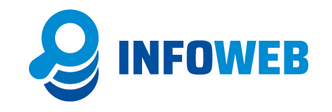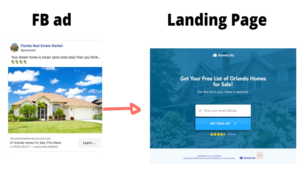Enterprise Learning Analytics Solution.?

Higher education has the power to shape people, with universities playing a central role in preparing students for success for the rest of their lives.
With increasing attrition rates across the industry, CQUniversity (CQU) wanted to improve its student retention and, conversely, decrease its overall attrition rate (calculated up to one year later) by providing students with support targeted when it matters, during the term/semester. They wanted their students to succeed each term and increase their chances of continuing their studies towards graduation.
Education and learning helps students reach their full potential
There are many different factors that contribute to a college student’s academic success or failure. CQU was looking to create a learning analytics solution that would give them meaningful, actionable metrics and accurate predictions of academic achievement. This allows for early intervention and support from staff with whom students interact every day; their teachers, course coordinators and student support teams.
CQU, already a leader in the field of learning analytics, had a tool that leveraged its Moodle learning management system (LMS) to enable student intervention strategies during the term. .
The university wanted to build on the success of the first learning analytics tool and create an enterprise-level solution that ingests a larger and more complex data set. The solution aimed to provide an accessible tool for the student and academic support team, designing and coordinating student support and retention strategy while reducing perceived data barriers between areas of the institution. The tool would provide a scaled enterprise learning analytics solution.
The objectives of the CQU project included:
Improve student retention rate.
Provide teachers and counselors with comprehensive data on their cohorts to enable the facilitation of personalized early intervention strategies at scale.
Student welfare is a priority for every educational institution. A student who is happy and feels supported is more likely to stay engaged and achieve their ambitions.
Open source Laravel and React frameworks have been used to provide an easy to navigate solution, providing a positive user experience (UX) for users.
CQU Success – the software solution
CQU and Catalyst TI have developed the “CQU Success” learning analysis tool.
CQU successful login page
At a high level, the Enterprise Learning Analytics Tool:
structure. These included student management system, CRM, learning management system (LMS), academic information management system (AIMS), continuous feedback data, business intelligence data and predictive analytics data.
The CQU Success solution is hosted in the cloud on AWS, while the source data is hosted in the university’s on-premises digital infrastructure.
User interface
CQU Success – Cohort Dashboard
The React solution enabled flexibility in the Agile development strategy, which supported the continuous delivery of new features as the number of application use cases grew and more data was included to meet needs. Some key features include:
How up-to-date is the data?
As a data-driven tool, it was essential that CQU Success include accurate data to allow users to make informed decisions about how to support students.
The solution has gone through multiple evolutions in design and integration strategy to achieve this. The final solution leverages the benefits of the React application to provide a seamless user interface and CQU’s data warehouse infrastructure to provide a durable data model. This blended approach is intended to provide flexibility for future changes to institutional datasets without ongoing development costs within the application itself.
Design large-scale student intervention strategies
The Catalyst team has developed built-in functionality that allows users to design personalized intervention strategies for students at scale.
Using Cohort Dashboard filters, users can focus on specific student engagement metrics or other identifying demographic and academic data points to target “at risk” students. “. The interface then activates an email function with mail merge functionality to automatically populate students’ personalized data.
For example: when an academic identifies students who are at risk of failing their unit, who have not logged into Moodle for more than a week and who have low academic progress rates, these students can be targeted and given a personalized communication designed to provide initial support and initiate conversation. to create an ongoing support strategy.
The success of the CQU allows users to have a global view of a student’s engagement in their studies during the term. At the individual student level, users have access to data on engagement and progress in their other currently enrolled units.
Support to assess a student’s commitment and performance over a term
This open access to data becomes essential in identifying trends in student behavior and whether this is isolated to a specific unit or to all units. Holistic support strategies can then be designed for a student, in conjunction with student support teams.
Access to data
CQU Success enables role-based data access, with dedicated unit, course, and college dashboards for different user roles. These dashboards allow users to access aggregated datasets on the cohorts for which they have specific responsibility.
Data security feature to hide personally identifiable information
Data security is essential and ensuring the responsible use of personally identifiable information (PII) is paramount. The app includes features to hide PII by activating the security shield button. This allows for interactive training strategies and screen sharing without the risk of disclosing personal information.
Results
The Catalyst team worked closely with CQU to deliver the project to requirements. CQU Success is now a core business, accessible to 2,500 users. The new learning analytics tool is an essential part of CQU’s student retention strategy.






